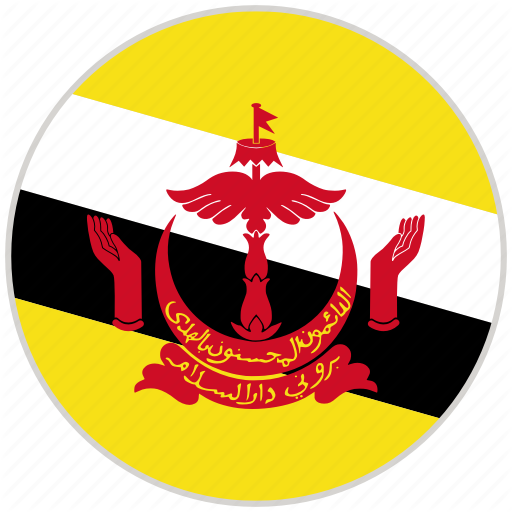Working Group Report on “Overall Architecture of Community Building in East Asia" -Regional Architectures for Non-Traditional Security and Environmental Cooperation in East Asia
Introduction
-
The Meeting of the NEAT Working Group on “Overall Architecture of Community Building in East Asia (Regional Architectures for Non-Traditional Security and Environmental Cooperation in East Asia)" was held under the sponsorship of the Japan Forum on International Relations (JFIR) on April 24 and 25, 2006 in Tokyo, Japan. A total of 20 participants from all 13 NEAT member countries were engaged in free, lively, and productive discussions.
-
Community-building in East Asia has made a remarkable progress since 1997 when the first ASEAN+3 Summit was held. This is evident in the institutionalization of ASEAN+3 processes, currency cooperation, bilateral and multilateral economic cooperation through Economic Partnership Agreements and Free Trade Agreements, and the East Asia Summit (EAS). Above all, functional cooperation is making steady progress and will be an important driving force in laying the foundations of the East Asia community.
-
The NEAT Working Group (WG) focused on three main themes: cooperation on non-traditional security issues; pandemic threats; and environmental issues. The three main themes were chosen because their causes and effects are transnational, and require regional cooperation. Jointly addressing the problems shared by, and affecting, East Asian countries is crucial to fostering trust for community-building in the region.
-
For purposes of clarity, the WG adopted a working definition (used in the 2002 Joint Declaration of ASEAN and China) of “non-traditional security issues" as follows: problems such as trafficking in illegal drugs, people-smuggling (including trafficking in women and children), sea piracy, terrorism, arms smuggling, money laundering, international economic crime and cyber crime which affect regional and international security and pose new challenges to regional and international peace and stability.
-
The WG also addressed the issue of pandemic threats with specific reference to Severe Acute Respiratory Syndrome (SARS) and avian influenza. The WG discussed institutional frameworks for dealing with such environmental problems as deforestation, forest fires, chemical pollution, air pollution, marine and river contamination, and global warming.
-
Institution building is crucial for community building. The WG underlined the importance of an effective secretariat for East Asia cooperation. The secretariat should be supported by the members of the East Asia community.
Architecture to Promote Cooperation on Non-Traditional Security Issues (Transnational Crimes):
-
There is a broad consensus on the need for regional cooperation in addressing transnational crimes, above all human trafficking (including trafficking in women and children), drug trafficking, and money laundering.
-
Transnational crimes are often linked. For example, trafficking in narcotics also involves money laundering and arms smuggling.
-
There are two major challenges that need to be addressed for promoting cooperation in these fields: the cultural gap (that is, the varying perceptions and priorities of different countries) and the gap in state capability (that is, the differences between statements/declarations and implementation). These gaps are particularly prominent in the legal, institutional, technical, and information areas.
-
There have been sufficient discussions at the Track II level. What is required now is the promotion of actual programs for regional cooperation in combating transnational crimes.
-
ASEAN+3 should serve as main processes for regional cooperation, along with other essential frameworks, especially in formulating general principles for regional law enforcement based on respect for sovereignty and mutual trust. The ASEAN Secretariat should serve as the program coordinator of the region's attempts to narrow the above gaps.
-
Civil societies should play a more important role in combating transnational crime and Track-II should facilitate their efforts. It may be possible to propose extra sessions in the ASEAN People's Assembly on these issues.
-
Specific issues need to be addressed as part of, among others, ASEAN+3 processes, including sharing of information and intelligence, extraterritoriality, and harmonization of legal systems. To deal with these challenges and issues we need to come up with general, common principles that address not only crime but also issues such as poverty alleviation and protection of labor, assistance to developing countries, immigration, law-enforcement frameworks, fostering mutual trust, establishment of databases and central strategic research and coordination of information exchange.
-
The creation of a Center for Transnational Crime will be useful. Its missions, including capacity building in general, trust-building, and information exchange, should be clear.
Architecture to Promote Cooperation on Non-Traditional Security Issues
Terrorism
-
There is also broad consensus about terrorism. The 2001 ASEAN declaration to combat terrorism aims to deepen cooperation among law enforcement agencies, study relevant international conventions, enhance information and intelligence exchange, build capacity, and increase cooperation at the bilateral, regional and international levels. The Southeast Asia Regional Center for Counterterrorism has been established in Kuala Lumpur.
-
ASEAN+3 cooperation builds on what the ASEAN has achieved. AMMTC + 3 is the appropriate mechanism for promoting cooperation on counterterrorism. An ASEAN+3 unit in the ASEAN Secretariat should be strengthened and follow closely such cooperation.
-
It is also important to develop a common position among the ASEAN+3 countries so that they can work together to support the UN conventions on terrorism.
-
It is crucial to promote constructive values through a country's education system so as to curb extremist influences on the young generation. It must be ensured that school texts do not promote a culture of hate and chauvinism. Terrorism should not be associated with any race, culture or religion. The war on terrorism must not only address the symptoms but also their root causes.
Maritime Crimes
-
There is less consensus on regional cooperation in maritime security. “Securing the seas," defined as “securing the consolidated web of communication," (COWOC) looks not only at sea lanes, but also at international straits and hub seaports as crucial to maritime security.
-
Although there is no disagreement on the importance of security in sea lanes, international straits and hub seaports, there is no consensus about how to go about achieving this, mainly because of the political sensitivity of the issue, above all concerning the security of the Straits of Malacca.
-
Given the enormous importance of maritime security--for instance traffic in the Straits of Malacca is expected to double in ten years--littoral states should be encouraged to take initiatives to reach a common agreement with user countries on the norms and rules of maritime security in the Straits of Malacca and in creating a framework for burden- sharing between littoral and user countries.
-
Multilateral mechanisms for dealing with issues such as oil spills and search and rescue operations should be put in place.
Weapons Trafficking
Weapons trafficking is also a matter of concern. However, Track 1 and Track 2 processes have different foci: Track 1 tends to look at heavy weapons trafficking, while Tracks 2 and 3 are more concerned with the trafficking in small weapons.
Architecture to Promote Cooperation on Pandemic Threats
-
There is a general consensus about the urgency of containing avian influenza. Containing the avian flu should be dealt with as part of ASEAN+3 and other processes to promote cooperation among members.
-
Countries in the region have practical experiences in dealing with SARS, which requires not only state but also societal response. These experiences will be instrumental in addressing avian flu and whatever comes after it. Stock-taking should be promoted, good practices should be shared among the member countries, and efforts should be made for capacity building to contain the threat.
Architecture to Promote Cooperation on Environmental Issues
-
Environmental problems are especially salient for fostering community-building because they are not zero-sum “games" and because governments are already under strong pressure from their citizens to take action.
-
Policy priority should be given to global and regional problems, especially global warming, deforestation, and marine and river contamination, since they cannot be properly addressed without regional and global cooperation.
-
In promoting regional cooperation, 1) emphasis should be placed on technical and scientific approaches; 2) broadening the existing bilateral or sub-regional frameworks for cooperation into a regional framework; 3) producing common guidelines for environmental management, assessments and common codes of conduct by an Experts Group of ASEAN+3 and institutional platform for cooperation; 4) conclusion of regional agreements to address trans-boundary environmental problems among governments of ASEAN+3, of which Northwest Pacific Action Plan (NOWPAP) can serve as a model; and 5) obtaining technical knowledge from developed countries.
-
The goal of sustainable economic development should be promoted. The joint academic research and the development of the new technology in the field of environmental protection should be promoted.
-
Cooperative mechanisms should be built on what has already been established by ASEAN and ASEAN+3.
In Concluding,
The WG stresses that:
-
Addressing non-traditional security issues, pandemic threats and environmental issues is not only important in itself, but also crucial to nurturing trust and promoting community building in East Asia.
-
There is a need for policy initiatives to be as specific as possible.
-
There is a need to take advantage of, and build on, existing mechanisms for cooperation.











.png)



.png)




